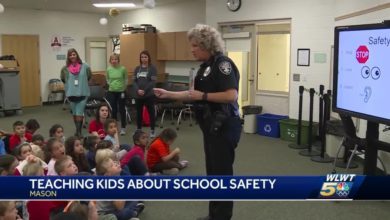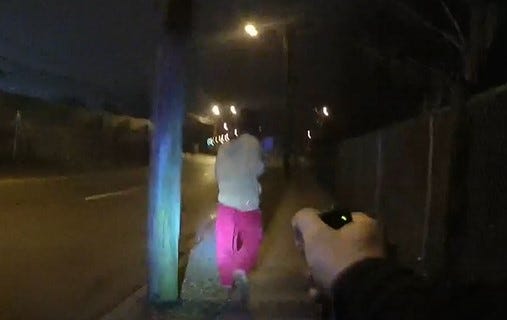
If their football team hadn't lost during a nationally televised game, it might still be business as usual for an Ohio high school that calls itself Bishop Sycamore.
But the players donned their uniforms, challenged IMG Academy of Florida and lost 58-0.
On Sunday, ESPN commentators questioned the school's claim to have multiple Division I prospects on its roster. On Monday, the school's academics came under scrutiny. On Tuesday, Gov. Mike DeWine called for an investigation into whether Bishop Sycamore ever met Ohio's minimum education standards.
And on Wednesday, Republican and Democratic state lawmakers started asking whether the rules governing this particular kind of private school needed to change.
"I think what we should do is let the Department of Education look into this, see what the issues were and make recommendations to the General Assembly ...," Sen. Andrew Brenner, R-Delaware, said. And if legal changes are necessary, "I will take the lead."
Non-chartered, non-public
Ohio parents have a range of different schools to choose from beyond their local, public school. There are community (charter) schools, online schools, chartered private schools and since 1983 there have been non-chartered private schools.
Each kind of school comes with a different set of state regulations.
Bishop Sycamore registered with the state as a non-chartered academy.
Schools in this category don't seek accreditation from the State Board of Education (often for religious reasons) because they don't want to adhere to certain state curriculum requirements and tests.
"You get no money from the state, but you get to sort of do what you want," Senate President Matt Huffman, R-Lima, said.
Ohio registered 401 private schools with this designation during the 2020-2021 school year. And they ranged from small, homeschool cooperatives to $14,000 a year private academies like Mars Hill in Cincinnati.
But no matter how big or how small, each school is expected to meet a set of minimum education standards. State law requires unchartered schools file annual reports detailing their hours of instruction, teacher qualifications and classroom safety.
But it doesn't appear as though Ohio investigates whether any of them tell the truth.
False claims made
Bishop Sycamore's 18-page filing from the 2020-2021 academic year claimed it was an "innovative, academically accredited school" that it rented space inside Phillips Hall on Franklin University's campus in Columbus.
That's not true, according to university spokesperson Sherrie Mercurio.
"Representatives from Bishop Sycamore did reach out to us in 2020 to discuss the opportunity to lease space. However, no contract was ever signed," Mercurio wrote in an email. "Representatives of Franklin University have reached out to Bishop Sycamore on multiple occasions to request that our address be removed from their website since there is no relationship between the two institutions."
And Ray Holtzclaw, the father of a former student, told The Columbus Dispatch that Bishop Sycamore never asked to see his son's academic transcripts and only required attendance at one religious class.
"As far as I know, none of the kids did any school," Holtzclaw said.
Bishop Sycamore director Andre Peterson has repeatedly said the school is not a scam and that his own son is enrolled.
"If it’s a scam and the kids are not going to school and not doing what they’re supposed to do, then I’m literally scamming myself," Peterson told The Columbus Dispatch. "And most importantly, I’m hurting my own son."
Huffman and other lawmakers aren't convinced.
"This appears to be an abuse of the system and to the extent that they've lied, they need to be prosecuted ...," Huffman said. "It’s a tragedy for these kids and their parents."
Rep. Mary Lightbody, D-Westerville, agreed.
As a former school teacher and athlete, Lightbody understands how kids hoping for that sports scholarship feel. A chance to play televised football games and possibly be scouted in the process would be a dream come true for many aspiring athletes.
"I want to see if there is an opportunity to tighten these policies in a way that will help protect our families from getting led down a false path," Lightbody said.
Complaint-driven investigations
DeWine's office said the state traditionally doesn't investigate these kinds of private schools unless there is a complaint. Non-chartered schools choose to forgo public dollars in exchange for fewer regulations, and for the most part, it's worked for them.
"On the surface, this seems to be an anomaly," DeWine spokesman Dan Tierney said.
But the governor's office is open to the possibility that statutory changes could help prevent future cases.
“Whenever you have something like this, it’s important for all of us – the General Assembly, the governor’s office, the public, the news media, obviously – to take a hard look at this and say ‘how did this happen?’ and ‘what lessons are there to be learned from what has happened?’” DeWine said during a Wednesday news conference.
Huffman and Brenner, who chairs the Senate education committee, floated possible monetary penalties for submitting false information or requiring the state to verify basic details from the annual reports.
"We don't want to interrupt the valid operations of schools like Mars Hill and Lima Christian Academy ...," Huffman said. But "if there’s not a penalty for lying, there needs to be."
Anna Staver is a reporter for the USA TODAY Network Ohio Bureau, which serves the Columbus Dispatch, Cincinnati Enquirer, Akron Beacon Journal and 18 other affiliated news organizations across Ohio.
Source link









